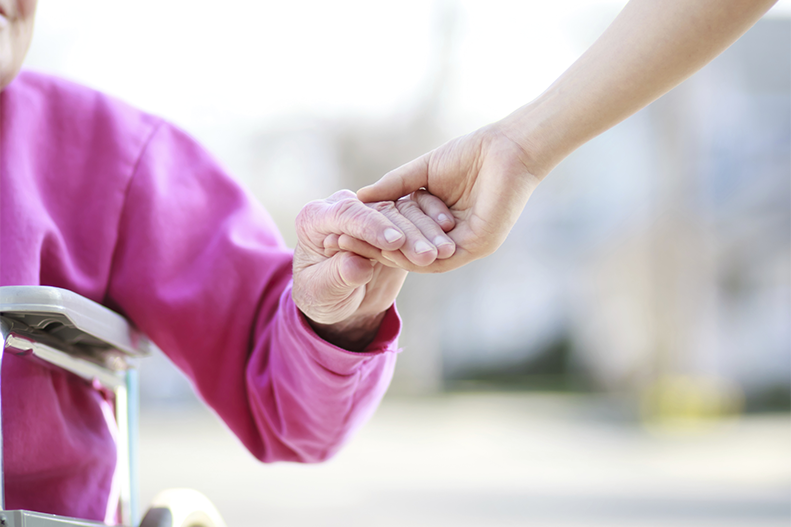After a stroke, you or your loved one may be wondering what will come next and how you will adjust to life after a stroke.
Inpatient stroke rehabilitation is one way to get the specialized care stroke patients need in order to adapt and help recover their mobility and communication skills. In this setting, physicians, nurses, therapists, and others work together to design a comprehensive treatment plan, tailored to the individual needs of each patient.
RELATED: Identifying the Signs of Stroke
You or your loved one will be assigned a room, provided with meals and snacks, and the appropriate treatment. A nurse will bring your medications at the proper time, and if needed, you will receive assistance in bathing, eating, and other essential functions. Family and friends are invited to visit to support recovery.
Never Miss a Beat!
Subscribe to Our HealthBeat Newsletter!
Thank you for subscribing!
You can now select the specific newsletters you'd like to receive.
You are already subscribed.
Subscribe to more newsletters in our email preference center.
Sorry, an error occurred. Please try again later.
Get Healthy Tips Sent to Your Phone!
Physical Therapy for Stroke
Many stroke victims experience a loss of mobility, one-sided weakness or paralysis, loss of strength and endurance, and/or trouble with balance.
A physical therapist will thoroughly evaluate these issues and create a series of exercises, movements, and strategies to either improve the deficit or work around it. This may include passive range-of-motion exercises, repetitive movements, climbing stairs, stimulating affected limbs, and more. Your physical therapist may also suggest exercises that you can do on your own.
Occupational Therapy After Stroke
Occupational therapy (OT) is designed to help the stroke victim re-learn activities for daily living, including getting dressed, making meals, and cleaning.
Your occupational therapy program is based on both your abilities after stroke and your lifestyle needs. You can work alongside your occupational therapist to re-learn certain tasks and develop strategies for living post-stroke.
Speech Therapy for Stroke Victims
A speech-language pathologist (SLP) is trained to help stroke survivors both communicate after stroke, as well as strengthen their ability to swallow, handle social situations, and develop memory-related skills.
Your speech therapist will use multiple strategies to help you or your loved one improve communication. Alternative communication devices, including symbol boards or computers, may also be used.
Mental Health After Stroke
Many people struggle with the deficits, treatments, and health limitations that can occur following a stroke, and it may take a toll on your mental and emotional well-being.
RELATED: Depression in Older Adults
Some stroke victims may experience clinical depression following their stroke. Talk to your doctor about you or your loved one’s emotional health after a stroke. Medication and therapy may be needed as a part of your treatment.
For more information, call 1-877-AT-REHAB (28-73422) or visit the website for stroke rehabilitation at the UPMC Rehabilitation Institute.
About UPMC Rehabilitation Institute
The UPMC Rehabilitation Institute offers inpatient, outpatient, and transitional rehabilitation, as well as outpatient physician services so that care is available to meet the needs of our patients at each phase of the recovery process. Renowned physiatrists from the University of Pittsburgh Department of Physical Medicine and Rehabilitation, as well as highly trained physical, occupational, and speech therapists, provide individualized care in 12 inpatient units within acute care hospitals and over 80 outpatient locations close to home and work.
